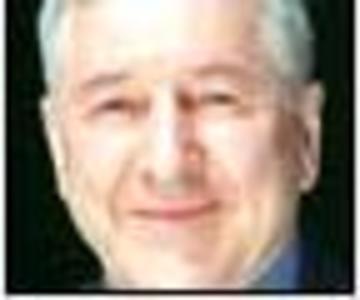Pierre Trudeau, back in 1962, got it right: "It is not the concept of nation that is retrograde; it is the idea that the nation must necessarily be sovereign."
So it is today with last Saturday's resolution adopted by the Liberal Party of Canada's Quebec wing. It is not the fact that "the Liberal Party of Canada recognizes the Quebec nation within Canada" that is dangerous. Rather, as Mr. Trudeau understood, you can't extricate the concept of nation from Pandora's box without releasing a terrifying flock of birds of prey.
First, there is the assumption that a nation, to be normal, must be sovereign -- one of the United Nations. This has been dinned by separatists for decades: a non-sovereign nation is unnatural, a cripple that has failed to fulfill its destiny. It is the duty of every citizen emancipated from a colonial mentality to press for independence.
And so, when Gilles Duceppe was asked by reporters Monday to comment on the Quebec Liberal resolution, he replied: "That's fine if people recognize that Quebeckers form a nation. Now we'll have to see what that will mean. Because the NDP has recognized that for decades, but then at each referendum, they act in contradiction to the positions they have taken." In other words, if the NDP recognizes Quebec as a nation, they should recognize its right to secede by a referendum vote alone.
A second assumption is that to oppose constitutionalizing the recognition of Quebec as a nation (or a distinct society) is to commit an intolerable affront -- lèse-Québec. In 1867, the Fathers of Confederation recognized the distinctiveness of Lower Canada by giving that territory its own provincial government while enshrining the French language in Quebec's legislature and courts and in the federal Parliament. Since then, the Quebec government's power has swollen immensely beyond anything envisaged in 1867. But this essential recognition is now considered paltry. When the Meech Lake accord was debated in the National Assembly in 1987, all the political parties except the Liberals were opposed, and 85 per cent of the presentations before the committee studying the package condemned it. But when two other provinces failed to pass it, the outrage in Quebec reached cataclysmic ferocity.
These past few days, editorialists and columnists in Quebec have multiplied the warnings against the "affront" to Quebec if the Liberal convention next month votes the resolution down.
Thirdly, the assumption among Quebec federalists and separatists alike is that the recognition must not remain "an empty shell." It must have far-reaching consequences, never precisely spelled out. The Robert Bourassa government considered the Meech Lake package simply as a first stage, "the foundations of a comprehensive constitutional reform to come in a second stage of negotiations."
A fourth assumption is that the recognition of Quebec as a nation must be constitutionalized to reconcile Quebec with the 1982 Canada Act. It patriated the Constitution and introduced the Charter of Rights and Freedoms, over the objections of the National Assembly. This argument restores the constant rhetoric of Mr. Bourassa and Brian Mulroney that Quebec was "left outside" the Constitution and must somehow be reintegrated by new constitutional amendments. Michael Ignatieff, interviewed Wednesday on CPAC's Revue politique, asserted: "Quebec is not in the Constitution." In fact, the Supreme Court of Canada settled that issue unanimously and definitively in 1982: "The Constitution Act, 1982 is now in force. Its legality is neither challenged nor assailable." A refusal to recognize its legitimacy means asserting nationalist mythology over reality and the rule of law.
Last Saturday's Liberal resolution rests on a foundation of sheer myth. Its first sentence states: "WHEREAS history recognizes the three founding peoples of Canada -- Aboriginal, French and English . . ." Now, the notion that Canada was built on "two founding peoples" has been demolished by historians such as Ramsay Cook and Stéphane Paquin. A creation of the 20th century, it was totally unknown to the Fathers of Confederation. As for aboriginals, even designating them as one single people is ludicrous. I still recall the summer of 1960 I spent conducting sociological research at Great Whale River: The Crees would speak to the whites; the Inuit would speak to the whites. But the Crees and the Inuit would not speak to each other.
Quebec, like Canada, contains several nations. To define them in the Constitution means throwing open Pandora's box.
William Johnson, a former president of Alliance Quebec, is the author of Stephen Harper and the Future of Canada.
The inherent dangers in recognizing Quebec as a nation
La nation québécoise vue du Canada

William Johnson53 articles
William Johnson, a Quebec journalist, is a former president of Alliance Quebec



















Laissez un commentaire Votre adresse courriel ne sera pas publiée.
Veuillez vous connecter afin de laisser un commentaire.
Aucun commentaire trouvé